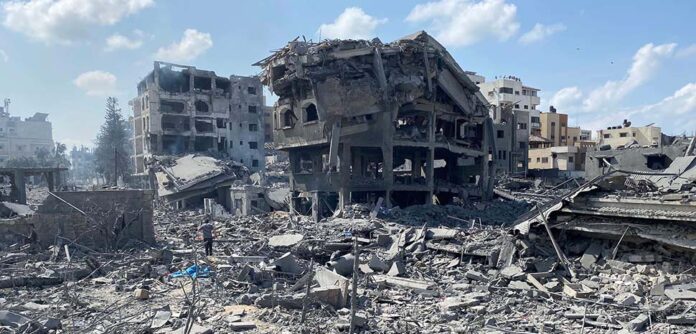Top Biden administration officials are embarking on a crucial diplomatic mission to the Middle East this week, aiming to avert a full-scale regional conflict and secure a ceasefire and hostage agreement in Gaza. The trip comes amidst escalating tensions, with 115 hostages held by Hamas and nearly 39,800 Palestinian deaths reported.
U.S., Egyptian, and Qatari diplomats are intensifying efforts to bridge gaps between Israel and Hamas ahead of critical negotiations scheduled for August 15. The outcome of these talks could significantly influence President Biden’s legacy and affect the broader stability of the region.
Also Read: Kamala Harris Overtakes Donald Trump in Crucial Swing States
In the meantime, military actions continue. Early this morning, the Israel Defense Forces (IDF) reported an airstrike on a terror cell in southern Gaza’s Rafah, which was identified emerging from a tunnel. The IDF released footage of the strike, which was conducted by a drone after operatives were spotted by surveillance cameras.
In addition to the strike in Rafah, IDF troops targeted a building housing a terror cell and launched attacks on sites in Khan Younis. These strikes included retaliation against rocket launch sites used to target the border community of Kissufim and a building linked to Hamas’s rocket unit. Over the past 24 hours, Israeli aircraft struck more than 30 other targets across Gaza, including buildings used by terror groups and weapon depots.
Domestically, Israeli National Security Minister Itamar Ben Gvir has sharply criticized the ongoing negotiations for a ceasefire and hostage deal, calling them a form of surrender to Hamas. In a recent interview, Ben Gvir condemned the potential agreement as a strategic error, suggesting it could jeopardize Israel’s support from its allies if aid to Gaza is cut off.
Ben Gvir, who has been closely monitoring the situation and receiving updates from local commanders, argued that the current approach would undermine Israel’s efforts against Hamas and negatively impact national security.
As the U.S. and its partners work to navigate these complex negotiations, the situation remains fluid, with significant implications for both regional and global stability.



